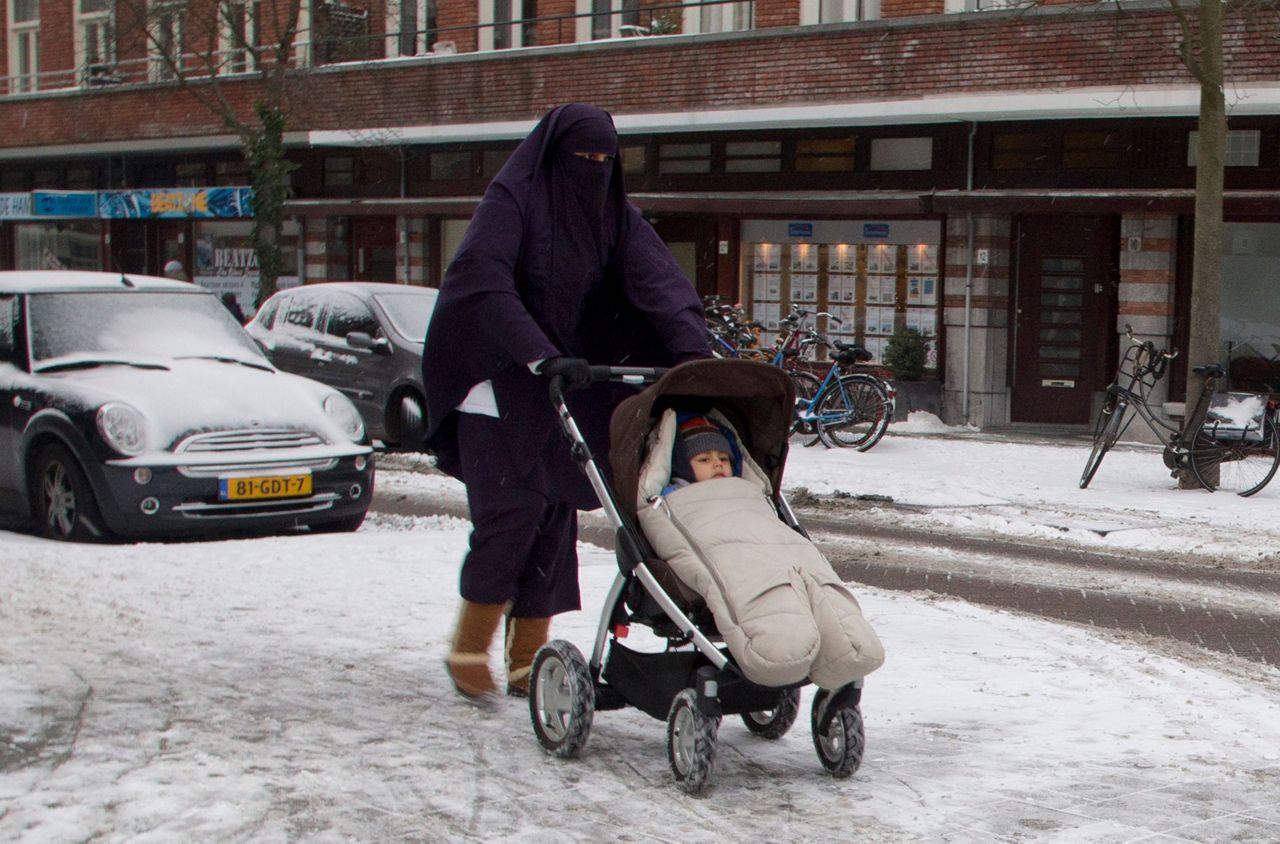THE HAGUE, Netherlands (AP) — A new Dutch law took effect Thursday banning face-covering clothing — including the burqa and niqab worn by conservative Muslim women — on public transportation, in government buildings and at health and education institutions.
The Netherlands, long seen as a bastion of tolerance and religious freedom, is the latest European country to introduce such a ban, following the likes of France, Germany, Belgium, Austria and Denmark.
Muslim and rights groups have voiced opposition to the law — formally called the "partial ban on face-covering clothing" — and an Islamic political party in Rotterdam has said it will pay the 150-euro ($167) fines for anybody caught breaking it.
There were no immediate reports Thursday morning of anybody being fined under the new law, which was passed despite the fact that very few women in the Netherlands wear a burqa or niqab — estimates put the number at a few hundred in this nation of 17 million.
Anti-Islam lawmaker Geert Wilders, whose calls for a total burqa ban ignited more than a decade of debate before parliament approved the law last year, welcomed the introduction of the limited ban as "a historic day" and called for it to be expanded to include Islamic headscarves.
"I believe we should now try to take it to the next step," Wilders told The Associated Press in a telephone interview. "The next step to make it sure that the headscarf could be banned in the Netherlands as well."
The Dutch government has insisted that its partial ban doesn't target any religion and that people are free to dress how they want. A government site explaining the new ban says, however, that "this freedom is limited at locations where communication is vital for good quality service or for security in society."
Wilders dismissed that explanation as political correctness.
Interior Minister Kajsa Ollongren, who wasn't available for comment Thursday, said earlier this year that the government will evaluate the new law after three years — usually such evaluations follow five years after a new law is implemented.
It remains to be seen how strenuously the law will be enforced in the Netherlands.
The national federation of academic hospitals said in a statement that enforcement is up to police and prosecutors. It added: "We are not aware of any cases in which wearing face-covering clothing or a possible ban has led to problems" in health care.
The head of the umbrella organization of public transport companies also has said that bus drivers and train conductors don't have the power to enforce it and would have to leave it up to police.
The Dutch ban came into force eight years after France became the first European nation to ban the public use of veils, both face-covering niqabs and full-body burqas. A 2004 law also bans Muslim hijab headscarves and other prominent religious symbols from being worn in state schools, but doesn't apply in universities.
France's tough law fell foul of the U.N. Human Rights Committee, which last year ruled that the country violated the human rights of two women by fining them for wearing the niqab.
Professor Tom Zwart of the University of Utrecht, who studies the intersection of law, culture and religion, said that the ban is largely symbolic, but for women who wear a niqab "the ban is still on the books, and if they come across a strict bus driver or tram conductor, they might still be in trouble. This undoubtedly has a chilling effect on their ability to take part in public life."
Copyright 2019 The Associated Press. All rights reserved. This material may not be published, broadcast, rewritten or redistributed.



